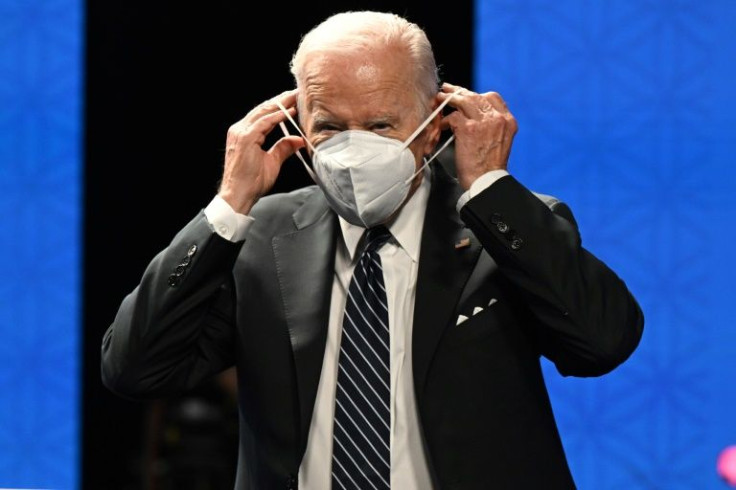Gaffes Or Trial Balloons? Biden Loose Lips Rattle World Stage
From promising to defend Taiwan militarily to suggesting regime change in Russia, US President Joe Biden has developed a knack for off-the-cuff pronouncements that have rattled diplomacy.
For journalists following Biden abroad, it has almost become routine -- the frank-speaking US president making headlines with a loaded or brusque answer, and the White House then quickly insisting he was not setting new policy.
In the last moments of a news conference in Tokyo on Monday, Biden answered affirmatively that the United States would defend Taiwan militarily if it is attacked by China, which claims the self-governing democracy as its own.
It was not the first time Biden has made waves with a formulation on Taiwan. For more than four decades, under a policy set when he was a senator, the United States has provided the island weapons for its self-defense but stayed deliberately ambiguous on whether it would intervene.
Both a White House official and Defense Secretary Lloyd Austin swiftly said that US policy had not changed, as Beijing voiced fury and Taiwan saluted what it considered evidence of ironclad commitment.
The episode comes two months after Biden ad-libbed in a speech in Poland about Russian President Vladimir Putin, "For God's sake, this man cannot remain in power."
The White House promptly denied that Biden was advocating the removal of Putin, which would be a major escalation of the US campaign that Biden himself had said was limited to supporting Ukraine.

Before Putin invaded Ukraine in February, Biden, who had been warning of dire consequences if Russia went ahead with an attack, also raised eyebrows by suggesting a lighter Western reaction for a "minor incursion."
But Biden, who throughout his life in politics has been known for wearing his emotions on his sleeve and has limited the opportunities at home for verbal blunders, sometimes digs in.
Biden has stood firm on accusing Russia of "genocide" in Ukraine and, well before the rest of his administration, accused Moscow of "war crimes."
Each time, Biden's remarks prompt questions. Is the 79-year-old simply speaking from his heart? Or is he setting a new policy -- or perhaps testing one out?
"It's very hard to say whether these are gaffes or a two-level game. But if it is a two-level game, it is incredibly dangerous," said Joshua Shifrinson, an associate professor of international relations at Boston University.

"It can exacerbate tensions; it generates uncertainty," he added.
Biden took office with more experience in foreign affairs than any president in decades and had promised more predictability than his voluble and volatile predecessor Donald Trump.
Trump frequently stunned the world with his undiplomatic pronouncements, from insulting leaders of allied nations to threatening war over Twitter.
"With Trump there was no predictability but Biden was expected to be the very consistent kind of guy," Shifrinson said.
"Bluntness can be a very good thing but in a situation like Taiwan it can be quite dangerous."
Bonnie Glaser, an expert on Taiwan at the German Marshall Fund of the United States, said that Biden no doubt believed what he was saying.
"But it is a gaffe in the sense that he is misstating US policy," she said.
"I don't think it serves US interests to have the president misstating what our policy is," she added.
"I think that it is more effective if our policy is clear and understandable to our friends, our allies and our enemies."
Some hawks that usually feud with Biden gave him credit for his remarks.
Republican Senator Lindsey Graham tweeted that Biden's statement was "the right thing to say and the right thing to do."
But others saw risks in seemingly loose talk after months of US-backed efforts to rally support for Ukraine.
"The West's robust response to Russian aggression in Ukraine could serve to deter China from invading Taiwan," tweeted Stephen Wertheim, a senior fellow at the Carnegie Endowment for International Peace.
"But Biden's statement risks undoing the potential benefit and instead helping to bring about a Taiwan conflict."
© Copyright AFP 2024. All rights reserved.




















